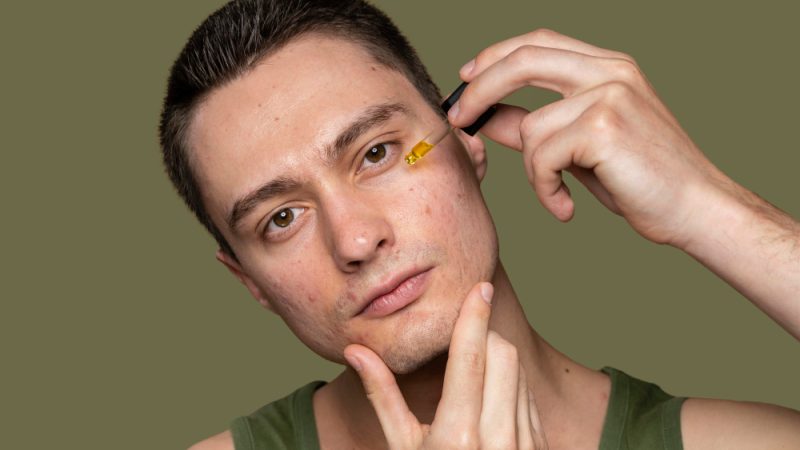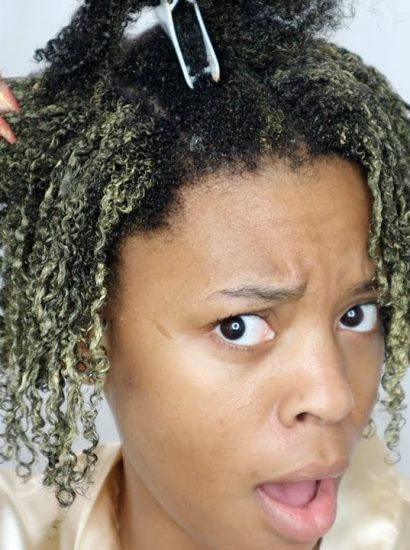Many people with acne-prone skin avoid face oils, fearing they will cause more breakouts. However, the right non-comedogenic face oils can actually help balance sebum production, soothe inflammation, and prevent acne. The key is choosing lightweight oils that absorb well and do not clog pores.
In this guide, we will explore the top 10 face oils for acne that are safe, effective, and packed with skin-loving nutrients.
Jojoba Oil
Why It’s Great for Acne
- Closely mimics the skin’s natural sebum
- Helps regulate oil production
- Non-comedogenic and easily absorbed
Jojoba oil is one of the best face oils for acne-prone skin because it balances sebum levels, keeping the skin hydrated without making it greasy. It also has antibacterial properties that help reduce acne breakouts.
How to Use It
- Apply a few drops to damp skin after cleansing
- Use it as a lightweight moisturizer or mix with your favorite skincare products
Rosehip Oil
Why It’s Great for Acne
- Rich in vitamin A (natural retinol alternative)
- Helps fade acne scars and hyperpigmentation
- Lightweight and fast-absorbing
Rosehip oil is packed with antioxidants and essential fatty acids that promote skin regeneration and repair. It is excellent for healing acne scars and reducing inflammation.
How to Use It
- Apply a few drops to your face before bed
- Mix with a moisturizer for extra hydration
Tea Tree Oil
Why It’s Great for Acne
- Natural antibacterial and antifungal properties
- Fights acne-causing bacteria
- Reduces inflammation and redness
Tea tree oil is a powerful spot treatment for acne. It kills bacteria and reduces swelling, making it one of the best essential oils for breakouts.
How to Use It
- Dilute a drop in a carrier oil like jojoba or rosehip before applying
- Use as a spot treatment on pimples
Do not apply undiluted tea tree oil directly on the skin, as it can cause irritation.
Squalane Oil
Why It’s Great for Acne
- Non-greasy and ultra-lightweight
- Hydrates without clogging pores
- Has anti-inflammatory properties
Squalane is a plant-derived oil that provides deep hydration without feeling heavy on the skin. It helps balance oil levels and soothes irritation, making it perfect for acne-prone skin.
How to Use It
- Apply a few drops after your serum or moisturizer
- Use daily for a hydration boost
Hemp Seed Oil
Why It’s Great for Acne
- High in omega-3 and omega-6 fatty acids
- Non-comedogenic and fast-absorbing
- Reduces redness and soothes irritation
Hemp seed oil is lightweight and deeply nourishing, making it one of the best face oils for acne-prone and oily skin. It helps reduce inflammation and redness while keeping the skin moisturized.
How to Use It
- Massage a few drops into your skin after cleansing
- Use morning and night for balanced hydration
Argan Oil
Why It’s Great for Acne
- Rich in vitamin E and antioxidants
- Helps control excess oil production
- Non-greasy and absorbs quickly
Argan oil hydrates and nourishes the skin without making it greasy. It is especially great for combination skin, as it moisturizes dry areas while controlling oil in the T-zone.
How to Use It
- Apply a few drops as the final step in your skincare routine
- Use before makeup for a smooth, hydrated base
Tamanu Oil
Why It’s Great for Acne
- Naturally antibacterial and anti-inflammatory
- Helps fade acne scars
- Promotes skin healing and regeneration
Tamanu oil is an excellent choice for acne scars and post-breakout healing. It speeds up skin recovery and improves overall texture.
How to Use It
- Apply a small amount to acne spots or scars
- Mix with a lighter oil like jojoba for daily use
Grapeseed Oil
Why It’s Great for Acne
- Contains linoleic acid to prevent clogged pores
- Reduces acne inflammation
- Lightweight and fast-absorbing
Grapeseed oil is one of the best oils for oily and acne-prone skin. It helps control excess oil production while keeping the skin hydrated and nourished.
How to Use It
- Apply a few drops to your face after cleansing
- Use as a base oil for DIY skincare treatments
Evening Primrose Oil
Why It’s Great for Acne
- Rich in gamma-linolenic acid (GLA)
- Helps balance hormones that trigger breakouts
- Reduces redness and irritation
Evening primrose oil is particularly beneficial for hormonal acne, as it helps regulate oil production and reduce inflammation.
How to Use It
- Apply directly to acne-prone areas
- Use as a supplement for additional skin benefits
Black Cumin Seed Oil
Why It’s Great for Acne
- Strong antibacterial and anti-inflammatory properties
- Helps clear clogged pores
- Reduces swelling and redness
Black cumin seed oil is a potent natural remedy for acne, especially cystic acne. It prevents bacterial growth and soothes inflamed skin.
How to Use It
- Apply a drop or two directly on breakouts
- Mix with another lightweight oil for daily use
How to Choose the Right Face Oil for Your Skin Type
| Skin Type | Best Face Oils |
| Oily Skin | Grapeseed, Squalane, Jojoba |
| Combination Skin | Argan, Rosehip, Hemp Seed |
| Sensitive Skin | Squalane, Evening Primrose |
| Acne-Prone Skin | Tea Tree, Tamanu, Black Cumin Seed |
Conclusion
Using the right face oils for acne can help balance oil levels, reduce breakouts, and promote clear, healthy skin. Lightweight, non-comedogenic oils like jojoba, tea tree, rosehip, and hemp seed oil provide hydration without clogging pores.
Try incorporating these oils into your skincare routine and enjoy clear, glowing skin naturally. Which face oil will you try first? Let us know in the comments.
FAQs
Can face oils help with acne?
Yes, the right face oils can balance oil production, reduce inflammation, and prevent breakouts without clogging pores.
Which face oil is best for oily acne-prone skin?
Jojoba oil, grapeseed oil, and squalane are the best choices as they are lightweight and do not clog pores.
Can tea tree oil be applied directly to pimples?
It is best to dilute tea tree oil with a carrier oil like jojoba before applying to avoid irritation.
How often should I use face oils for acne?
Face oils can be used once or twice daily, depending on your skin’s needs.
Will face oils make my skin more oily?
No, non-comedogenic oils help regulate sebum production, keeping your skin balanced and hydrated.
Also read: DIY Skincare for Acne: Clear Your Skin Naturally at Home





